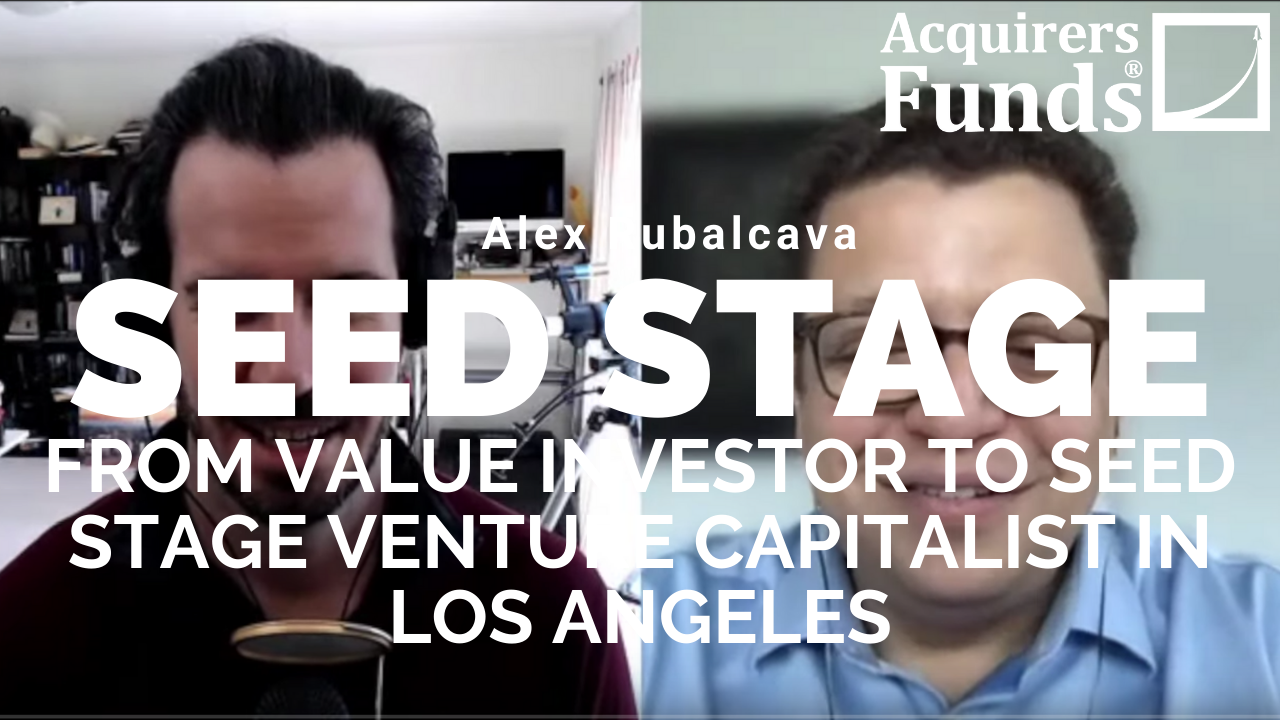During his recent interview with Tobias, Alex Rubalcava, Co-Founder And Managing Partner at Stage Venture Partners, discussed how to invest in enterprise software startups. Here’s an excerpt from the interview:
Tobias Carlisle:
So tell us a little bit about Stage. What do you do there?
Alex Rubalcava:
So my firm is a seed venture capital firm that invests in enterprise software startups. What that means is that we’re typically coming into a company where there are four or five, or maybe six or seven people. They’re about a year or two old. They’re raising anywhere from $1 to $3 million in their institutional round of capital.
Tobias Carlisle:
Right. So let’s talk about enterprise software. What is enterprise software?
Alex Rubalcava:
So enterprise software can mean a bunch of different things. It can mean developer tools, things like Atlassian or Stripe or stuff like that. It can mean network and telecom and data center related products, something like a PagerDuty. Or it can represent an application layer product, like Sales Force. I tend to play at the top of the stack. I tend to invest almost entirely in application layer products or middleware. What that means is I’m typically investing in high-end, expensive software that is used by business customers within a specific vertical.
Tobias Carlisle:
And what’s the reason for targeting that part of the stack?
Alex Rubalcava:
I target that part of the stack because if you are investing in more horizontal type products, think about something like Zoom or a Slack, at the seed stage, it’s very difficult to tell who’s got any kind of product differentiation. It’s very difficult to tell how you’re going to figure out customer acquisition, and it’s immensely competitive. Once you sort of figure out that Zoom is better than anything else, then the challenge becomes how do you make sure you get in the Series B or C or D round of that company, and there’s intense competition to do that. Whereas if a startup comes out with better software or an entirely new class of software to do something in clinical trials for pharmaceuticals, you know you have a pretty tight group of customers that you’re targeting. You know you have a pretty compelling and easy to articulate value proposition and you know that there are not going to be a thousand startups competing against you because you need very serious domain expertise to be a credible founder in a market like that.
Tobias Carlisle:
So are you looking at … when you say vertical enterprise, that’s something similar to Constellations, famously looking for vertical market software. Is it a similar direction?
Alex Rubalcava:
Yeah, somewhat. Constellation is typically buying up legacy products that may not have gotten super large but that are companies that serve their customers really effectively and that have a long basis for renewals. I’m looking for things that have all of that but that also have the potential to scale from zero or close to zero in revenues at the time that I invest to hundreds of millions of dollars of annual recurring revenue, or more, within ten years.
Tobias Carlisle:
Right. What’s the expectation of these companies? What’s your expectation for the hit rate at that stage?
Alex Rubalcava:
To a certain extent, the hit rate doesn’t matter. It’s a funny thing to say, but portfolio management in venture is more about how big your biggest three winners in a portfolio with 20 or 25 companies are than it is about what percentage of investments that you make money on. If I make one or two or three X my money on a startup, that’s a nice thing but that also doesn’t really move the need for my portfolio. What moves the needle is how big are my three biggest winners going to be? If my three biggest winners are 25X, 12X and 8X, my fund is going to be pretty mediocre, because I’m going to have a bunch of zeros in the portfolio in addition to those winners. I need my biggest winners to hopefully be somewhere around 100X in order to generate returns that compensate my investors for taking a risk on an asset class as a liquid and as risky as seed stage venture.
You can find out more about Tobias’ podcast here – The Acquirers Podcast. You can also listen to the podcast on your favorite podcast platforms here:
For all the latest news and podcasts, join our free newsletter here.
Don’t forget to check out our FREE Large Cap 1000 – Stock Screener, here at The Acquirer’s Multiple:




